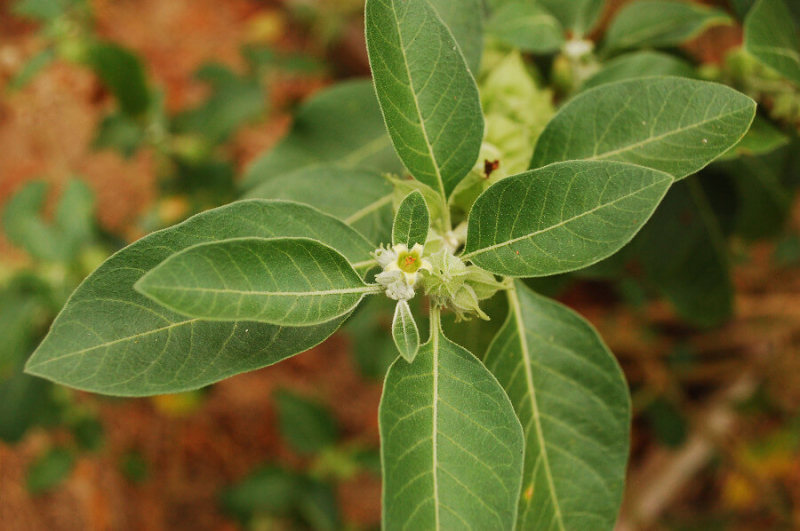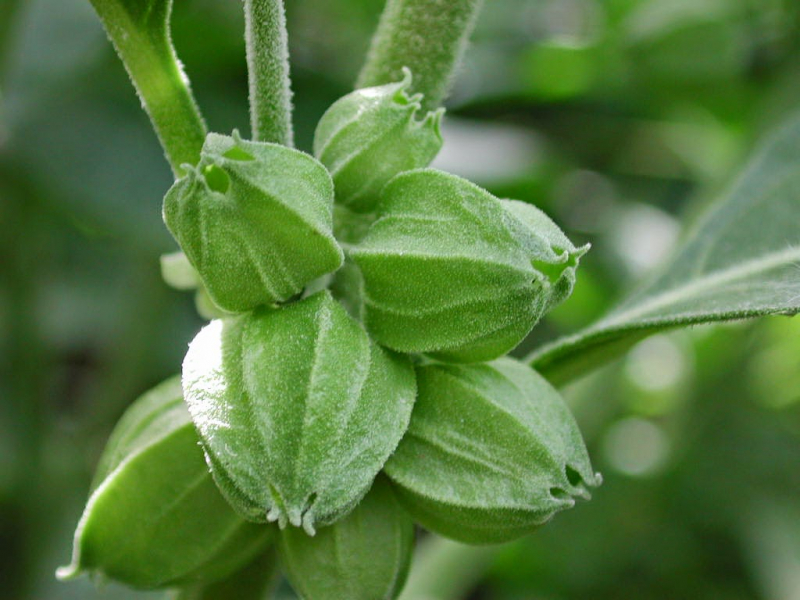Top 8 Health Benefits of Ashwagandha
Ashwagandha is a key herb in Ayurveda, a historic form of alternative medicine based on Indian ideas of natural healing. For thousands of years, people have ... read more...used ashwagandha to relieve stress, boost energy, and improve attention. “Ashwagandha” is Sanskrit for “smell of the horse”, which refers to both the herb’s scent and its potential ability to increase strength. Based on the study, below are the most probable ashwagandha benefits.
-
The capacity of ashwagandha to relieve stress is likely its most well-known benefit. It is classified as an adaptogen, which is a chemical that aids the body in dealing with stress. Ashwagandha appears to help regulate stress mediators such as heat shock proteins (Hsp70), cortisol, and stress-activated c-Jun N-terminal protein kinase (JNK-1). It also inhibits the activity of your body's hypothalamic-pituitary-adrenal (HPA) axis, which governs your stress response. Several studies have found that ashwagandha pills can aid with stress and anxiety relief. In a short trial of 58 people, those who took 250 or 600 mg of ashwagandha extract for 8 weeks had considerably lower levels of subjective stress and the stress hormone cortisol than those who took a placebo.
Furthermore, when compared to the placebo group, people who took ashwagandha supplements had much better sleep quality. Another research of 60 patients found that taking 240 mg of ashwagandha extract per day for 60 days reduced anxiety significantly more than a placebo treatment. As a result, a preliminary study suggests that ashwagandha may be a beneficial supplement for stress and anxiety. A recent assessment of research concluded, however, that there is insufficient data to develop a consensus on the best dosage and type of ashwagandha for treating stress-related neuropsychiatric disorders such as anxiety.

May help reduce stress and anxiety 
May help reduce stress and anxiety -
Ashwagandha has been found in studies to improve athletic performance and may be a good supplement for athletes. One study involved 12 men and women who took ashwagandha doses ranging from 120 mg to 1,250 mg per day. The findings imply that the plant may improve physical performance, such as strength and oxygen utilization during exercise. An examination of five research revealed that ashwagandha significantly increased maximum oxygen consumption (VO2 max) in healthy adults and athletes.
The maximum amount of oxygen a person can consume during strenuous exertion is referred to as VO2 max. It is a test of heart and lung fitness. Athletes and nonathletes alike must have an optimal VO2 max. Low VO2 max is linked to an increased risk of death, whereas high VO2 max is linked to a lower risk of heart disease. Furthermore, ashwagandha may aid in muscle strength. In one study, male volunteers who took 600 mg of ashwagandha per day and did resistance training for 8 weeks gained much more muscle strength and growth than a placebo group.

May benefit athletic performance 
May benefit athletic performance -
Some research suggests that in certain populations, ashwagandha may help lessen symptoms of other mental health problems, including depression. Researchers examined the effects of ashwagandha on 66 persons with schizophrenia who were feeling depression and anxiety in one trial. They discovered that taking 1,000 mg of ashwagandha extract daily for 12 weeks reduced depression and anxiety more than taking a placebo. Furthermore, another study found that ashwagandha may help alleviate overall symptoms and perceived stress in persons with schizophrenia.
According to preliminary studies from 2013, ashwagandha may assist alleviate cognitive impairment in patients with bipolar disorder. More research, however, is required. Furthermore, a 2012 study indicated that stressed people who took 600 mg of ashwagandha extract per day for 60 days experienced a 77% reduction in depressive symptoms, whereas the placebo group experienced a 5% reduction. However, because just one of the individuals in this study had a history of depression, the conclusions are inconclusive. Although some research suggests that ashwagandha may have antidepressant effects in certain people, it should not be used as a replacement for antidepressant drugs.

May reduce symptoms of some mental health conditions 
May reduce symptoms of some mental health conditions -
Some research has demonstrated that ashwagandha supplements improve male fertility and raise testosterone levels. In one study, 43 overweight men aged 40 to 70 with mild weariness were administered ashwagandha extract or a placebo tablet daily for 8 weeks. The ashwagandha medication was related to an 18% increase in DHEA-S, a sex hormone involved in the synthesis of testosterone. Participants who used the herb experienced a 14.7% higher increase in testosterone than those who took a placebo. Furthermore, a meta-analysis of four research discovered that ashwagandha administration significantly enhanced sperm concentration, volume, and motility in males with low sperm count.
In men with normal sperm counts, it also enhanced sperm concentration and motility. However, the researchers found that there is presently insufficient data to confirm ashwagandha's potential benefits for male fertility and that more high-quality studies are required.

May help boost testosterone and increase fertility in men 
May help boost testosterone and increase fertility in men -
There is limited evidence that ashwagandha may aid persons with diabetes or high blood sugar levels. A meta-analysis of 24 research, including 5 clinical trials in persons with diabetes, discovered that ashwagandha medication significantly lowered blood sugar, hemoglobin A1c (HbA1c), insulin, blood lipids, and oxidative stress markers.
Certain ashwagandha chemicals, notably withaferin A (WA), are thought to have potent anti-diabetic properties and may help encourage your cells to absorb glucose from your bloodstream. However, research is currently limited, and more well-designed trials are required. Limited data suggests that ashwagandha may lower blood sugar levels by influencing insulin release and the ability of cells to absorb glucose from the bloodstream.

May reduce blood sugar levels 
May reduce blood sugar levels -
Ashwagandha includes chemicals, such as WA, that may aid in the reduction of inflammation in the body. WA has been discovered to target inflammatory pathways in the body, including signal molecules known as nuclear factor kappa B (NF-B) and nuclear factor erythroid 2-related factor 2 (NF-ERF2) (Nrf2). WA has been proven in animal experiments to help lower levels of inflammatory proteins such as interleukin-10 (IL-10). Ashwagandha may also help lower inflammatory indicators in people, according to some data.
Adults experiencing stress were given ashwagandha extract for 60 days in one 2008 trial. As a result, individuals had much lower levels of C-reactive protein, an inflammatory marker, as compared to those who received a placebo. In another study, patients with COVID-19 were given an Ayurvedic medication including 0.5 grams of ashwagandha and other herbs twice daily for 7 days. When compared to a placebo, this reduced individuals' levels of inflammatory markers CRP, IL-6, and TNF-.

May reduce inflammation 
May reduce inflammation -
Ashwagandha may improve cognitive function. According to one assessment of five clinical research, there is preliminary evidence that ashwagandha may improve cognitive functioning in specific populations, such as older adults with mild cognitive impairment and people with schizophrenia. Cognitive functions it may benefit include:
- executive functioning
- attention
- reaction time
- performance on cognitive tasks
A study in 50 adults showed that taking 600 mg of ashwagandha extract per day for 8 weeks led to significant improvements in the following measures compared with taking a placebo:
- immediate and general memory
- attention
- information-processing speed
According to the researchers, chemicals present in ashwagandha, such as WA, have antioxidant effects in the brain, which may aid cognitive health. More research, however, is required before specialists can draw firm conclusions.

May improve brain function, including memory 
May improve brain function, including memory -
Many people use ashwagandha to encourage restful sleep, and there is some evidence that it may help with sleep problems. A research of 50 persons aged 65 to 80, for example, discovered that consuming 600 mg of ashwagandha root per day for 12 weeks dramatically enhanced sleep quality and mental alertness upon rising when compared to placebo treatment. Furthermore, one meta-analysis of five high-quality research discovered that ashwagandha had a tiny but substantial favorable effect on overall sleep quality.
Taking ashwagandha helped people feel less anxious and more attentive when they woke up. The results were more obvious in persons with insomnia and those who took more than 600 mg daily for 8 weeks or longer, according to the study.

May help improve sleep 
May help improve sleep





























